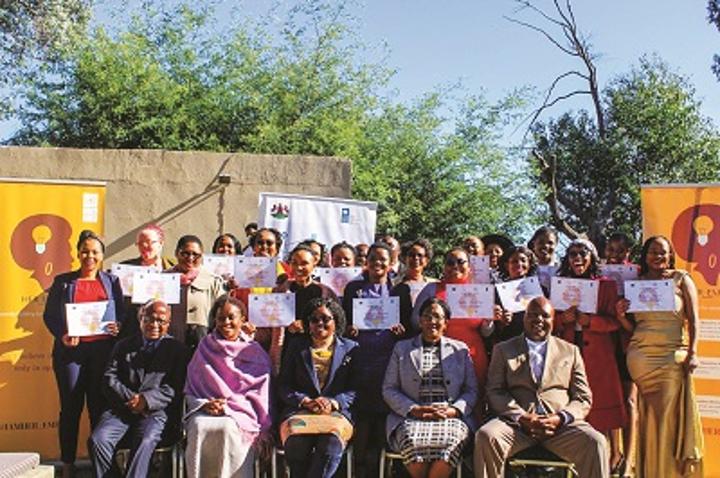Africa-Press – Lesotho. With the aim of empowering and capacitating female led-businesses in the country, United Nations Development Programme (UNDP) has facilitated a two-week training dubbed “Her Empire”.
This intensive training was closed on Friday where UNDP Head of Solutions Mapping Lebesa Nkune said the “business skills programme” entailed business agreement module which entailed marketing skills, access to finance, and financial management. The participants were also informed about legal requirements needed in running
businesses smoothly. 18 businesswomen were awarded certificates for completion of the Improve Your Business (IYB) and Start and Improve Your Business (SIYB)
modules. Nkune said women were educated and mentored on establishing successful businesses and writing proposals. He also added that the UNDP database is mostly dominated by
male businesses so they wanted to promote gender equality in order to ensure that female entrepreneurs are not left behind in Business. Nkune added that this is just an experiment for UNDP because even though the
classroom training was only for two weeks, they will continue to mentor the entrepreneurs in their individual businesses so that they can observe and analyze
the results of this training. The Ministry of Gender, Youth, Sports and Recreation Principal Secretary (PS) ‘Mamoeketsi Ntho said UNDP is the backbone of their ministry because they fund a lot of programs
that benefit the youth. Ntho recommended UNDP for accommodating women above 35 years, saying they are often left behind yet the carry the heaviest burden of responsibility as breadwinners
in their families. She said their Ministry‘s economic desk is mandated to empower women led businesses, so with the help of the UNDP, they promoted three
Sustainable Development Goals (SDGs) which are to ‘reduce poverty’ (SDG1), ‘gender equality’ (SDG5) and ‘promoting productive employment’ (SDG8). The UNDP Resident Representative Betty Wabunoha said women empowerment is at the
center of UNDP’s strategic plan and so ‘Her Empire’ is part of the response to ensuring that women are integrated into supply chains as economic agents and
equal competitors for emerging economic opportunities, adding that stronger and more competitive women–led enterprises are needed for both economic and social
benefits. Wabunoha said studies reveal that women-owned enterprises make up to 70% of the total population of Micro and Small Business Enterprises in Lesotho.
She added that the diversity of businesses among women in this cohort is evidence of the influence that women have in the domestic economy. She, however noted that women are missing in the leadership and formal
business spheres so they realized that women-led businesses are seldom found competing in the procurement for technical or consumer goods and services at UNDP.
For More News And Analysis About Lesotho Follow Africa-Press






